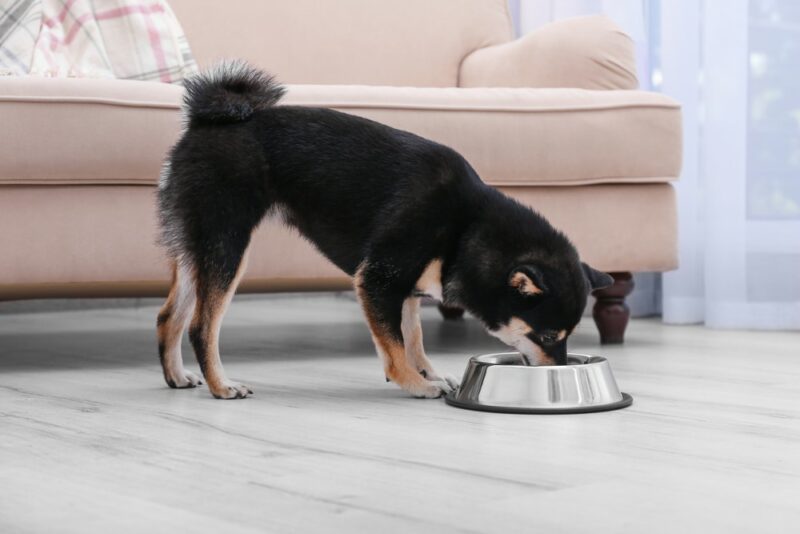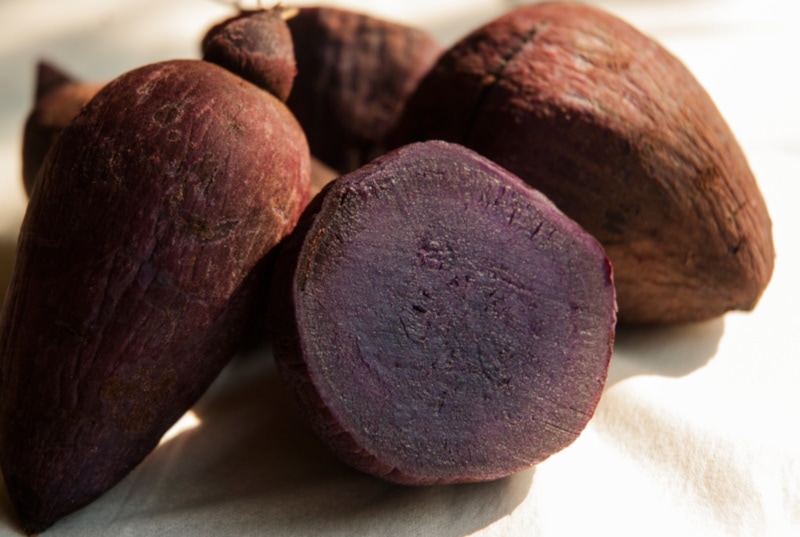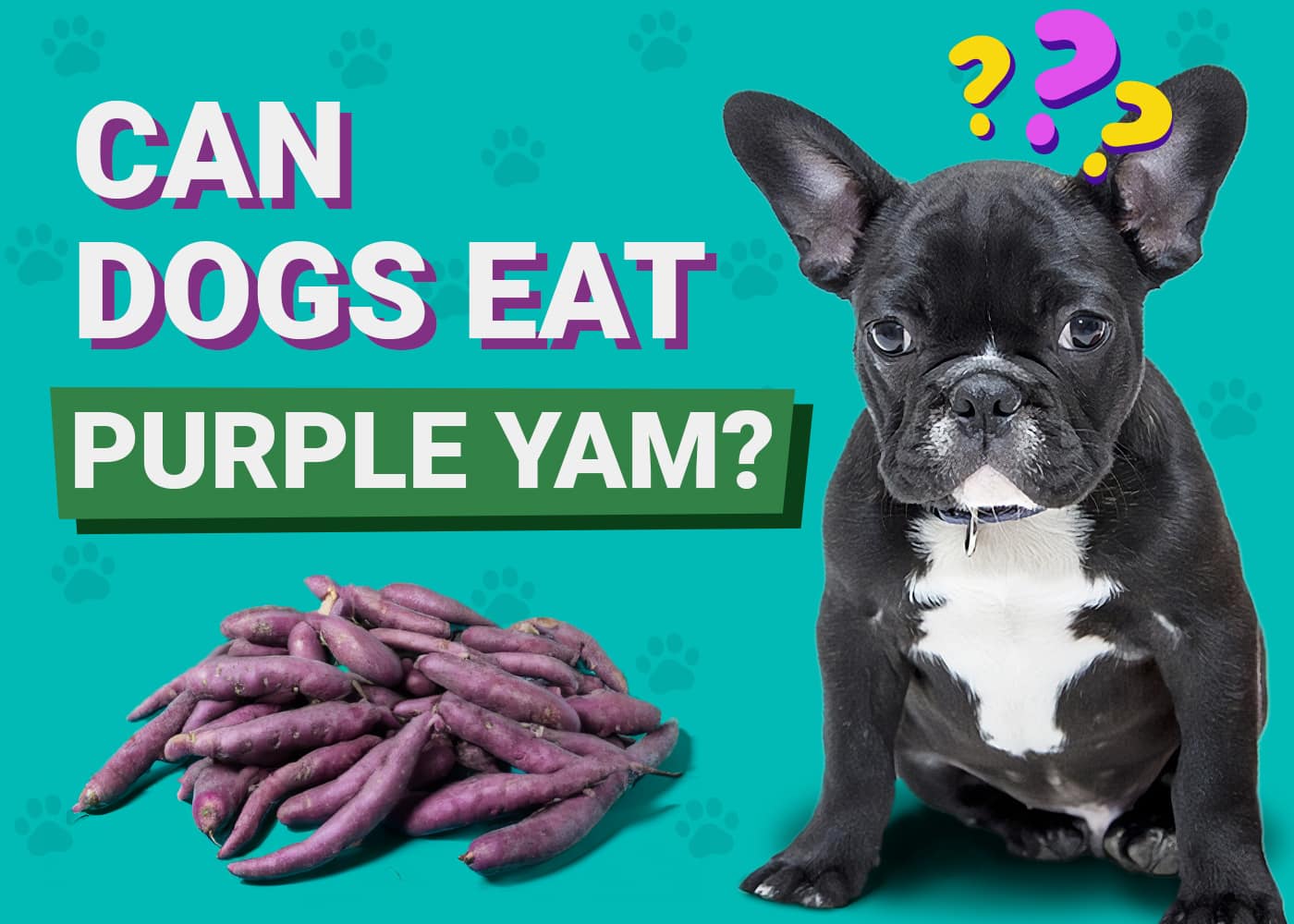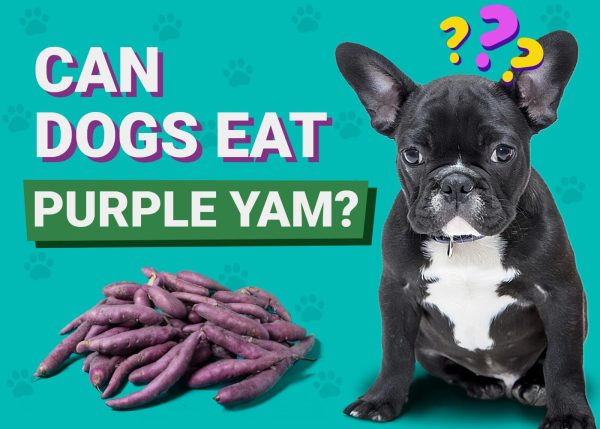Ube, also known as purple yam, is a popular root vegetable used in various dishes and desserts in the Philippines and around the world. While it may be a delicious treat for humans, you might wonder if it’s safe for your furry friend to consume. In this article, we’ll learn how Ube is safe for dogs, and also may have many health benefits.
Is Ube Safe for Dogs?
If the ube has been properly prepared (boiled or steamed), it is perfectly safe for dogs to eat. Feeding a large amount in one go will likely lead to gastrointestinal upset or discomfort, so don’t go too crazy. If you’ve never fed ube to your dog before, start with a few small pieces to ensure it doesn’t disagree with them.

Nutritional Content of Ube
Ube is a starchy root vegetable that is high in carbohydrates and low in fat. It also contains some vitamins and minerals, such as vitamin C, potassium, and magnesium. Too many carbohydrates can be unhealthy for your dog. But when fed in moderation, ube is a great alternative to many higher-fat carbohydrates, like pasta, if you want to add some extra bulk to your dog’s menu.
Another characteristic that sets ube above other similar vegetables is their flavonoid content. Flavonoids are compounds found in virtually all plants, flowers, and fruits, as well as the food and drinks made from them. They are more concentrated in pigmented plant matter, such as the purple flesh of the ube. Why do we care about flavonoids? There is a lot of interest in these chemicals due to their potential health benefits for humans and, likely, dogs.
Flavonoids – What’s the Buzz?
Known already for their antioxidant and anti-inflammatory properties, studies have revealed even more benefits that can be derived from consuming flavonoids. Some of the potential health benefits include:
- Anti-mutagenic and anti-carcinogenic, which has major implications for cancer prevention
- Reducing cardiac risk factors and preventing congestive heart failure
- Antibiotic and antiviral properties
Although many of these benefits require the identification, isolation, and refining of specific flavonoid types to achieve maximal pharmaceutical and cosmetic applications, the amounts consumed in food may have a positive impact on health.
Potential Risks of Feeding Ube to Dogs

If fed raw, ube contains toxins harmful to dogs, so this vegetable must be cooked before feeding it to your dog. If fed in large amounts, even cooked ube can have some adverse effects, such as indigestion, bloat, diarrhea, or vomiting. Additionally, a diet with too high a carbohydrate content can lead to obesity.
PangoVet. It’s an online service where you can <b>talk to a vet online</b> and get the personalized advice you need for your pet — all at an affordable price!
</p>
<div class="su-button-center"><a href=https://www.dogster.com/ask-the-vet/"https://pangovet.com/?utm_source=dogster&utm_medium=article&utm_campaign=dog_eat_drink%22 class="su-button su-button-style-default" style="color:#FFFFFF;background-color:#FF6600;border-color:#cc5200;border-radius:9px;-moz-border-radius:9px;-webkit-border-radius:9px" target="_blank" rel="nofollow"><span style="color:#FFFFFF;padding:0px 24px;font-size:18px;line-height:36px;border-color:#ff944d;border-radius:9px;-moz-border-radius:9px;-webkit-border-radius:9px;text-shadow:none;-moz-text-shadow:none;-webkit-text-shadow:none"> Click to Speak With a Vet</span></a></div></div></div>"}" data-sheets-userformat="{"2":513,"3":{"1":0},"12":0}"> If you need to speak with a vet but can’t get to one, head over to PangoVet. It’s an online service where you can talk to a vet online and get the personalized advice you need for your pet — all at an affordable price!

Ube Sounds Great! Why Aren’t We All Eating It?
The main limiting factors of ube are availability and price. Although it is a staple in places like the Philippines, it is usually only found in specialty grocery stores or Asian supermarkets in most other countries. It is more commonly available as a jam called halaya or in powdered form from health food stores.
Frequently Asked Questions
Are Ube, Purple Yam, and Purple Sweet Potato all the Same Thing?
Ube and purple yams are the same. Purple sweet potato has many similarities, but unlike the ube that grows on vines above the ground, the purple sweet potato grows under the soil. The good news is that purple sweet potato is also safe to feed your dog in moderation, provided you cook it first.
Can I Feed My Dog Ube Ice Cream?
Store-bought ube ice cream should not be fed to your dog since it contains far too much sugar, dairy, and sometimes the sweetener xylitol, which is highly toxic to dogs. However, you could make a dog-friendly ube icy treat using coconut milk and water to serve on a hot summer’s day.

Conclusion
If you are looking for a superfood to include in your dog’s diet, ube might be an option worth considering, provided that it is cooked before being given to them. As a carbohydrate, ube falls under the category of “added extra,” but as far as extras go, ube is a pretty special one. With the potential health implications this vegetable has for humans, we might just find it becoming more readily available in the future, though the price tag might not look so appealing.
Featured Image Credit: Nungning20, Shutterstock














